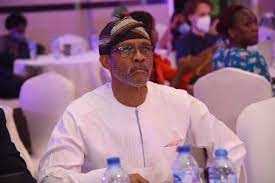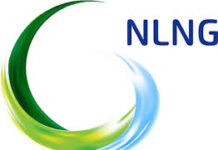… Harps on Research, Capacity Building, Precision Medicine and Knowledge Sharing
…As Lagos hosted 7th African Conference Ends
Experts at the just concluded 7th African Conference on One Health and Biosecurity hosted by the Lagos State Government in partnership with a non-governmental organization, Emerging Pathogens Treatment Consortium (GET), have identified health systems strengthening, research and capacity building as the panacea for tackling biosecurity threats and emerging infectious diseases in Africa.
Speaking on recommendations and resolutions reached at the three days hybrid conference held between Tuesday, 27th and Friday 29th October, 2021 at the Civic Centre, Victoria Island Lagos, the Commissioner for Health Prof. Akin Abayomi noted that professionals and stakeholders across health, agriculture, environment, security and allied sectors as well as the development sector and civil society in Africa have recommended that African countries should strengthen their health systems by establishing biobanks and biosecurity councils for effective deployment of responses against emerging infectious diseases.
He added the conference also recommended that consistent efforts towards building capacities to respond to biosecurity emergencies and flattening the waves of infections should be at the core of the proactive strategies against adverse effects of emerging diseases.
While noting that Africa should be the leaders in biosecurity development, Abayomi said the conference affirmed that policy makers and governance in the continent should support scientists and the health profession to strengthen biosecurity stressing that medical and epidemiological services must be strengthened to guarantee biosecurity.
He said: “At the end of the conference, it was recommended that African countries should strengthen their health system with establishment of biobanks and biosecurity councils for effective deployment of responses against emerging infectious diseases.
“We also recommended that local vaccine manufacture should be at the center of making vaccines available to Africans, thus, African governments individually and collectively should invest in research and provide enabling environment for experts and investors to commit resources into research and production of vaccines in response to the attendant challenges of emerging infectious diseases while assistance from international partners should be centered more on capacity building, research and development as well as experience sharing”.
The Lagos Health Commissioner also disclosed that the conference suggested that Antimicrobial Resistance Control Guidance should be integrated into healthcare delivery systems at the governmental level, while non-governmental stakeholders including youth, faith-based organizations, civil society organizations need to ramp up their involvement within sociocultural peculiarities of communities to conscientize towards behavioral changes.
He noted a deliberate, consistent and policy-driven intervention of the armed forces and other security agencies and immigration departments should be put in place to avert and contain access of unauthorized persons and non-state actors to biological agents.
According to him, other recommendations of the conference include, the need for the development of a framework for the establishment of Africa Center for Genomics, Data Management and Bioinformatics as custodian of repository for accessibility to molecular bio resource data in Africa.
“African leaders should take practical steps towards reversing long-lasting dependency on foreign donors in addressing health challenges by focusing on education, research and development, giving due recognition to indigenous innovation and harnessing the capacity of citizen within the region and in the Diaspora, as a major step towards One Health initiative and wholesome prosperity while African countries should work closely with international partners to ensure adherence to common standards and compliance with binding Conventions, Protocols and international agreements”, Abayomi said.
Speaking in the same vein, the Chief Operating Officer of GET Consortium, Dr. Ayodotun Bobadoye disclosed that delegates, stakeholders and participants at the conference had agreed to deploy conscious engagement in demanding improved funding for research and development in the health sector in Africa with the view to prioritize capacity building and exchange of ideas on best practices amongst professionals, researchers and stakeholders towards addressing the emerging realities around biosecurity and one-health initiative.
He noted that the conference reaffirmed commitment to genomics and precision medicine to address challenges of emerging diseases as well as in pursuit of a clear roadmap with a strategic framework for vaccine accessibility, production and distribution adding that the conference also reiterated the importance of addressing antimicrobial resistance in healthcare pipeline in the African Continent.
“Realizing the need to sustain awareness of the international non-proliferation norms and biosecurity-related obligations, the conference resolved to demand improved commitment from governments of countries across Africa, to existing obligations under the Biological Weapons Convention (BWC) and Resolution 1540 of the United Nations.
“The conference resolved to work with relevant state and non-state stakeholders to address legal, ethical and social issues to leverage on the opportunities of genomic intelligence and biosecurity”, Bobadoye said.
The just concluded 7th African conference on One Health and Biosecurity attended by professionals and stakeholders across the Africa continent provided a unique forum for robust interactions on biosecurity threats and the imperative for genomic intelligence and efficient healthcare responses in Africa. The conference received presentations from resource persons cutting across the healthcare sector, agriculture, the environment as well as from the development sector and civil society to arrive at the declaration and recommendations.

























